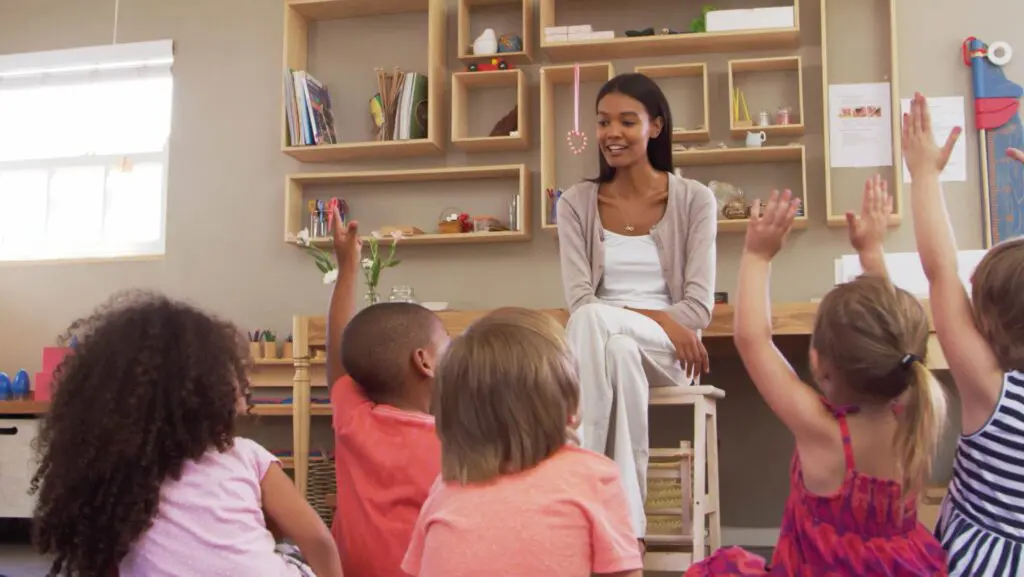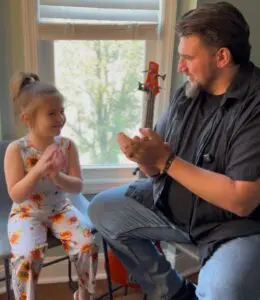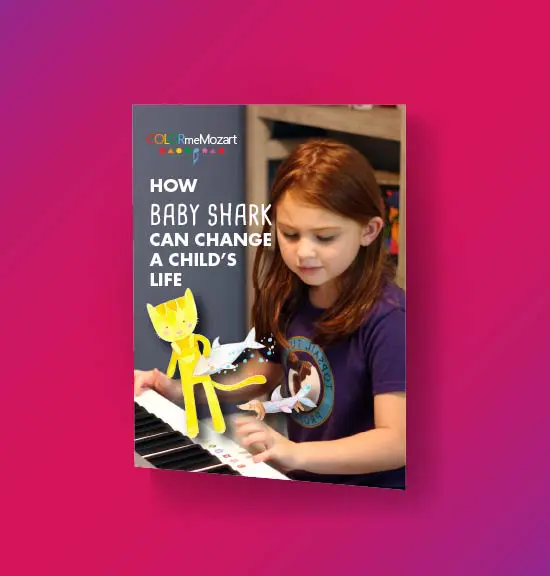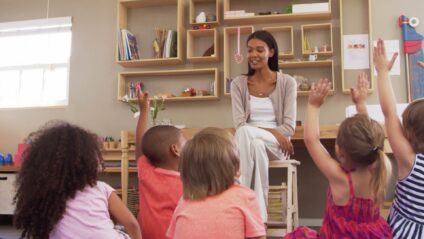 Preschool Music Curriculum
Preschool Music Curriculum
It is no surprise that any successful educational program should include music, especially in a preschool setting. Young children can be enthralled by music, which also aids in emotional expression and fosters cognitive growth. A preschool music curriculum that is thoughtfully created can be a useful tool for teaching young children vital life skills.
There are several advantages to including music in a preschool program. Language, social, and cognitive skills can all be improved with music. Music is also best learned alongside other subjects in school, as a young child is developing. We’ll talk about the advantages of a preschool music curriculum and how it can improve a child’s development in today’s post.
Language Development
The formation of language is aided by music. In his book, Musicophelia, Oliver Sacks explains that in our earliest years we learn all the phonemes that we need to speak our native language. Phonemes are the distinct units of sound in a specified language that distinguish one word from another. That is why when learn a second language later in life, we still retain an accent. Learning phonemes becomes increasingly more difficult as we age.
Children exposed to a variety of songs, rhythms, and other elements of music education have the benefit of additional language development within an effective preschool music program. Young students can acquire new words and phrases, as well as expand their vocabulary and pronunciation skills, by singing along to songs and breaking down and creating different rhythms. Children can develop an appreciation for variety of styles of music and learn about many cultures and traditions via music education.
Social Development
Another powerful benefit of music education is social development. Young children learn how to cooperate in a group, follow instructions, and take turns within a preschool music curriculum. These are fundamental and essential social abilities that kids need to engage with their peers and deal with social circumstances as they grow up. Additionally, children can learn lessons about leadership, collaboration, and teamwork through music.
Cognitive Progress
In another vital area that music is useful for is cognitive growth. Inside of a rich preschool music curriculum, students study rhythm, melody, harmony, and other musical components. Studies have shown that when engaging in musical activities, many areas of our brains light up with activity. This points to the fact that active participation in music engages a child in many ways, not just one. Their spatial-temporal abilities, which are crucial for math and science, are developed through the use of these concepts. Memory, focus, and concentration are also improved through music, which is beneficial for learning across the board.
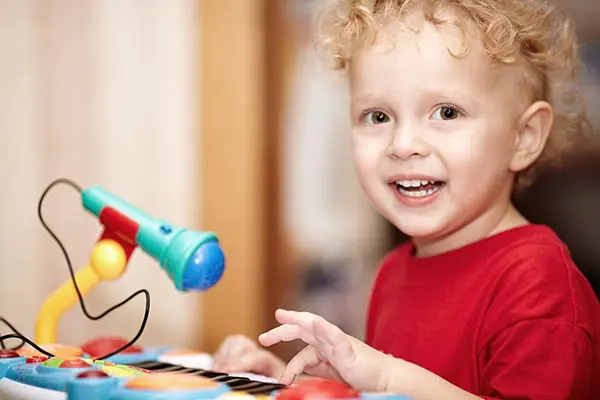
Incorporating a Preschool Music Curriculum
Preschool music education is a wonderful addition to a child’s growth and your classroom. A preschool curriculum can include music in a variety of ways. Here are a few tips that can make for a successful experience:
- Picking songs and games that are suitable for the child’s age. Make sure the songs and exercises you select are suitable for the pupils’ age and developmental stage. While older children might be able to manage more sophisticated material, younger children might need simple, repetitive songs and activities broken down into the simplest fundamental music building blocks.
- Utilize a range of tools. Kids may learn about various sounds and textures by using a selection of instruments. Simpler instruments like shakers and tambourines as well as more intricate ones like xylophones and drums can be used.
- Use dance and motion. Children’s coordination, balance, and gross motor abilities can all be improved by incorporating dance and movement into music-making activities. Children can express their emotions and creativity via dance.
- Include music in subjects outside of music. Math, science, and language arts are just a few subjects in the curriculum that you can include music into. Songs can be used to teach counting and patterning, for instance, or to introduce students to various cultures and customs.
- Employ technology. A preschool program can benefit greatly from the inclusion of music through technology. You can add to your musical endeavors by using music applications, videos, and online tools.
Benefits of a Preschool Music Curriculum
Children can gain many advantages from a preschool music education that is well-designed. Some of the primary advantages are as follows:
- Language development. As was already established, music can aid children in honing their linguistic abilities, including grammar, vocabulary, and pronunciation.
- Social development. Children’s social skills, such as cooperation, teamwork, and leadership, can also be developed through music.
- Cognitive growth. Children’s cognitive abilities, such as memory, attention, and concentration, can be improved with music.
- Emotional development. Children can express their feelings and foster their creativity through music.
- Understanding of different culture. Children can learn about various cultures and traditions through music, and they can also grow to value diversity.
Conclusion
For too long, music has been left to be taught only by music teachers in later grades. By the time students learn their first notes, the early stages of language development are long gone, making it more and more difficulty for them to learn by assimilation.
By bringing a preschool music curriculum to your classroom, you can assure that your students with reap all the benefits that come with learning music at a young age. Best of all, you will be the hero that guides them through that transformation. It will include benefits that will help them move on to be successful adults in whatever the future holds for them. In the same way we would never think of depriving a child of language, music, can be another language that they can communicate and express themselves with. Their self-confidence will grow in unimaginable ways.

